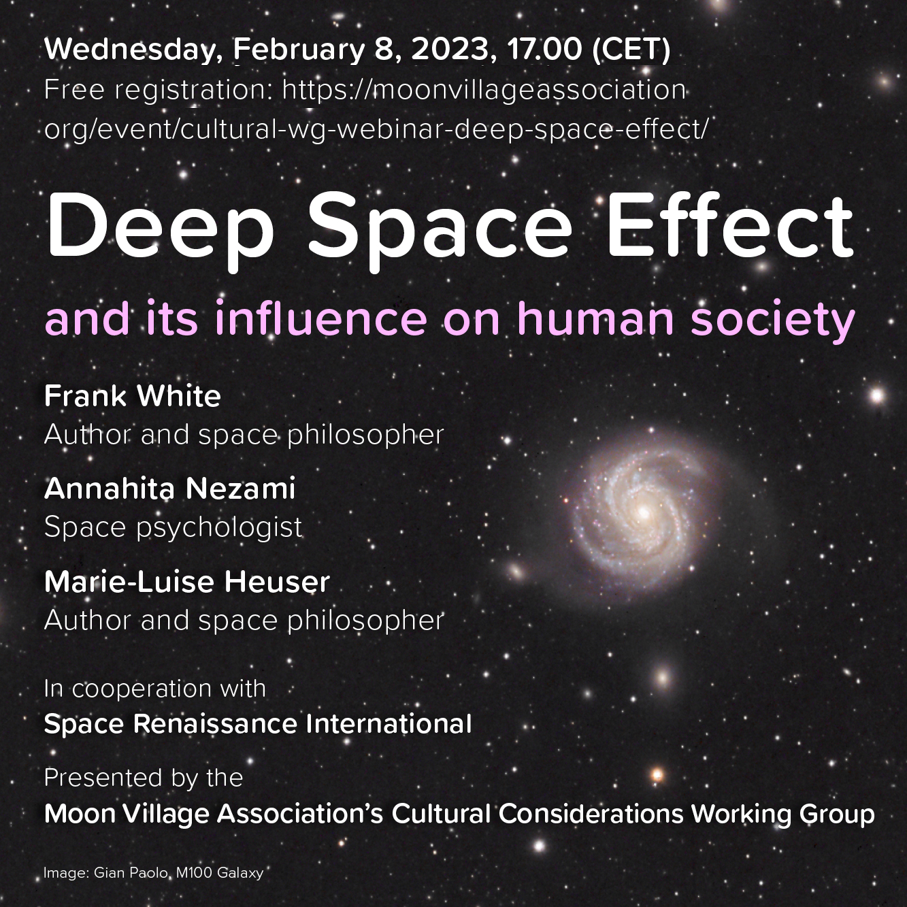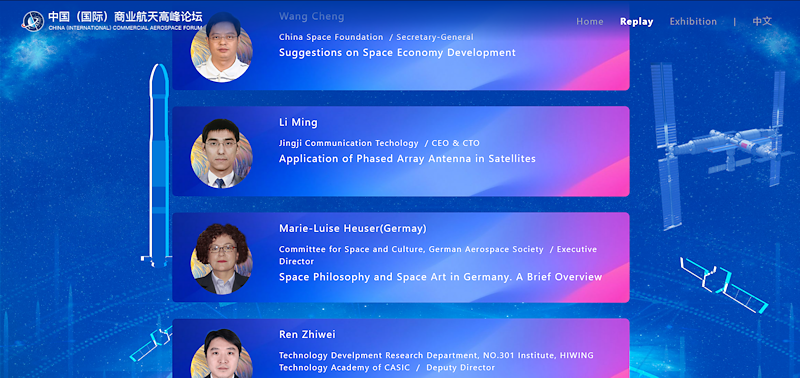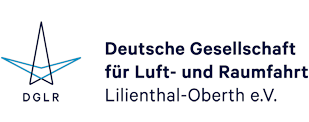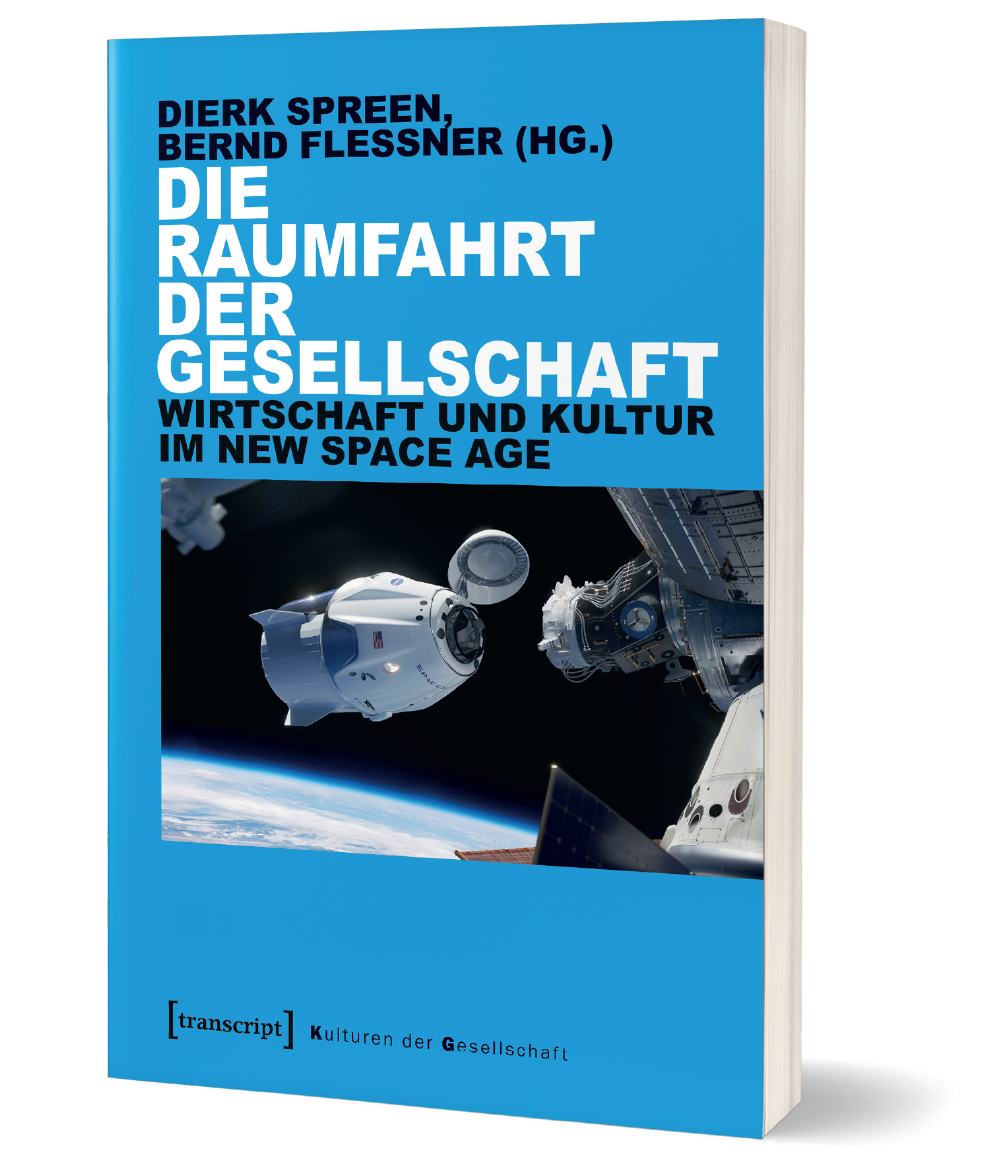R3.6 Raumfahrt und Kultur
Veranstaltungen 2023
15.09.2023 um 14:30 Uhr (New Yorker Ortszeit!)
UN-Vortrag von Dr. Marie-Luise Heuser
im Rahmen des "The Space 18th SDG Panel", United Nations General Assembly 78th
Transterrestrialism®. Why we are not just earthlings
Human beings are not local, earthbound beings, but universal beings capable of constantly transcending boundaries and horizons,
both cognitively and practically. This has been reflected in the long tradition of philosophy, art, and religion as a basic
trait of creative humanity. One need only think of Plato's sky chariot or Giordano Bruno's space explorations with the wings
of the mind. The human spirit is essentially free and cannot be confined to closed systems. That is why we invent techniques
that carry us also beyond the earth. The first fictional moon travelers were already aware of this. Transterrestrialism has,
will, and must overcome geocentrism in its also modern varieties, because transterrestrialism corresponds to the nature
of man. (Marie-Luise Heuser)
MOON VILLAGE ASSOCIATION
The Deep Space Effect and its Influence on Human Society
Wednesday, February 8, 2023, at 17.00 CET
Register at: https://lunarology.space/webinar_the_deep_space_effect.php
Agenda
Remo Rapetti: Introduction
Giuseppe Reibaldi and Bernard Foing: Welcome address
Frank White: The Universal Insight and the Overview Effect
Annahita Nezami: Going boldly where no human has gone before: The impact of space exploration and habitation on human psychology and the well-being ecosystems required to support this transition
Marie-Luise Heuser: Creatio ex zero. The Vacuum and the Blackness of the Universe in Philosophy and Art
Arthur Woods: Q&A session
Adriano Autino: Closing remarks

Frank White has authored or coauthored numerous books on topics ranging from space exploration to climate change to artificial intelligence. His best-known work,The Overview Effect: Space Exploration
and Human Evolution, is considered by many to be a seminal work in the field of space exploration. A film called "Overview," based largely on his work, has had nearly 8 million plays on Vimeo. White
considers himself to be a "space philosopher," and has long advocated developing a new philosophy of space exploration. His book on this topic, The Cosma Hypothesis: Implications of the Overview
Effect, has been recently published. In it, he asks the fundamental question, "What is the purpose of human space exploration? Why has the evolutionary process brought humanity to the brink of
becoming a spacefaring species?" In the book, he shares the idea of "the Human Space Program" as a "central project" that will engage all of us in the process of becoming "Citizens of the
Universe."
Annahita Nezami: Annahita is a senior chartered psychologist providing consultation, training, and therapy. She is a systems thinker, international speaker, and researcher advocating for positive
social change. Her areas of interest include space health and the Overview Effect, individual, societal and planetary well-being, neuroscience, stress and trauma, performance, and altered states
of consciousness. Annahita serves as an advisor to multiple organizations and was elected as a fellow of the Royal Society for the Encouragement of Arts, Manufactures, and Commerce (RSA). She has
been a guest lecturer at various establishments such as Kepler Space Institute, Deakin University, Central St Martin’s, and University College London (UCL), invited to talk about mental health
and the Overview Effect on BBC Radio 4 and TEDx. She is an active researcher and published papers and articles with Springer and other media outlets.
Marie-Luise Heuser: Studies of philosophy, history, physics and mathematics. Doctorate at the Heinrich-Heine-University of Düsseldorf with a thesis on "The Productivity of Nature. Schelling's
Philosophy of Nature and the Paradigm of Self-Organization in the Natural Sciences". Research and teaching at the Universities of Düsseldorf, Stuttgart, Heidelberg and Braunschweig. At TU
Braunschweig, head of the transdisciplinary space group in the Institute of Philosophy and subsequently head of the Department of Culture and Space at the Institute of Space Systems.
Head of the Space Philosophy Laboratory of the Space Renaissance Academy. Founder and Executive Director of the Society for Space Culture www.space-culture.eu. Numerous publications
on the philosophy of space travel since antiquity, especially on Plato, Giordano Bruno, Friedrich Wilhelm Joseph Schelling, Romanticism, the avant-garde
of the 1920s, and Günther Anders.
Buchempfehlung
Dierk Spreen / Bernd Flessner (Hg.)
Die Raumfahrt der Gesellschaft
Wirtschaft und Kultur im New Space Age
November 2021, 312 Seiten, kart., 30,00 €
ISBN 978-3-8376-5762-3, E-Book: 29,99 €
Alle Menschen sind Astronaut*innen – nachzulesen nicht nur bei Buckminster Fuller, sondern auch bei Michel Serres.
Aber was bedeutet es, die Raumfahrt als gesellschaftliches Projekt zu reflektieren?
Dieser Frage gehen die Beiträger*innen des Bandes im Hinblick auf die zwei wichtigen Dimensionen Wirtschaft und Kultur
nach, die in Verbindung miteinander betrachtet werden.
Die Analysen verdeutlichen, wie sich das technische Großprojekt der Raumfahrt in die Gesellschaft
eingeschrieben hat, und lassen schlussfolgern, dass die Raumfahrt kein reines Elitenprojekt
bleiben kann.
Dierk Spreen (Prof. Dr. phil.), geb. 1965, nimmt
derzeit im Fachbereich Wirtschaftswissenschaften
der HWR Berlin eine Gastprofessor für
Gesellschaftswissenschaften wahr.
Bernd Flessner (Dr.) ist Zukunftsorscher und
wissenschaftlicher Mitarbeiter am Zentralinstitut
für Wissenschaftsreflexion und Schlüsselqualifikationen
(ZiWiS) der FAU.J
Veranstaltungen 2022
DLRK 2022 Session: „Humanismus oder Transhumanismus in der Raumfahrt?“ – 27. September 2022
Dazu wurden folgende Vorträge präsentiert:
- Humanismus oder Transhumanismus in der Raumfahrt?
Dr. Marie-Luise Heuser (Gesellschaft für Kultur und Raumfahrt e. V., Düsseldorf) - Transglobale Gesellschaft
Prof. Dr. Dierk Spreen (HWR, Berlin) - Fernab der Erde - fernab der Menschenrechte? Zum Problem der Generationengerechtigkeit als humanistischer Norm in Weltraumsiedlungen
Michael Schumann (Universität Potsdam) - Cyborgs für die Raumfahrt? Evolutorische Robotik statt Transhumanismus
Prof. Dr. Bernhard Irrgang (TU Dresden)
(zusammen mit dem DGLR-Fachausschuss R3.5 Raumfahrt und Philosophie)

Online-Vortrag
Space Philosophy and Space Art in Germany.
A brief Overview
7th China International Commercial Aerospace Forum
26.11.21, Wuhan
- Konferenz Website
- Vortrag online ansehen ( Area: "Sub-forum 4", starting at minute 01:13:09)
Abstract:
Contemporary philosophy and art in Germany is influenced by phenomenology and fundamental ontology. Both currents of thought are explicitly anti-Copernican and strive for a terrestrial "re-rooting" of man. In contrast, today's space travel is based on a long cultural history of space flight "with the wings of the spirit," which, beginning with the Copernican turn at the time of the Renaissance, cognitively opened space to humans, creating an unlimited field of possibilities. In art, this new "space revolution" was expressed in planetary perspectives. In classical German philosophy and Romanticism, this expanded spatial consciousness was combined with an evolutionary perspective. Universal anthropology found expression in the art of Romanticism. The early space pioneers in the 1920s Weimar Republic in Germany were still directly influenced and motivated by this long tradition of thought. In order to counter the widespread new geocentrism in the humanities, a return to the beginnings of spacephilosophical thought and the aesthetic perception associated with it is called for.
Veranstaltungsreihe SPACE POETRY®
Heine Haus,
Bolkerstraße 53,
40213 Düsseldorf
Kuratiert und moderiert von Dr. Marie-Luise Heuser - m.l.heuser(at)gmx.net
Weitere Informationen: https://www.heinehaus.de/index.php/2021/09/14/space-poetry-2021/
SPACE POETRY® 2021
mit Birgit Kreipe und Joanna Vortmann im Heine Haus Düsseldorf
am 5.11.21 um 19:30 Uhr als Online-Veranstaltung
Das Life-Streaming wird gezeigt auf dem Youtube-Kanal des Heine Hauses: https://www.youtube.com/channel/UCQglYo-UpGeJ9d_wWVpahLg
Mit dem Weltraumzeitalter verändern sich auch unsere vertrauten Befindlichkeiten. Die seelische Verankerung in einem festen, geozentrischen Selbstgefühl und in der schützenden Hülle eines irdisch geschlossenen Systems weicht einer befreiten, aber auch haltlosen kosmischen Existenz.
- Die Lyrikerin Birgit Kreipe aus Berlin versetzt uns mit ihrem neuen Gedichtband aire in einen schwerelosen, ja mystischen Zustand, in welchem sogar Sicherheit suggerierende Landmaschinen ihre Bodenhaftung verlieren: ein Mähdrescher schwebt wie eine Raumfähre über reifem Getreide, oder eine Getreideschnecke wirft Körner über den Rand der Welt. Die Erdrotation kippt Bäume ins All. Zugleich werden kosmische Gebilde zu Altvertrautem, wie "die lichtfabrik, unsere gute alte galaxie".
- Die Künstlerin Joanna Vortmann aus Köln verzaubert mit ihrer Klanginstallation "Sounds of the Vacuum", in welcher physikalische Frequenzen von extraterrestrischen Vorgängen wie Sonneneruptionen, Magnetfeldänderungen, Pulsaren oder Gewittern auf dem Jupiter, die von der NASA und ESA in den hörbaren Bereich übertragen wurden, zu einer Symphonie komponiert wurden, die auf uns fremdartig, aber auch vertraut wirkt.
- Birgit Kreipe studierte Psychologie und Germanistik. Sie arbeitet als Lyrikerin, Übersetzerin von Lyrik und als Psychologin. Sie ist Dozentin am Haus für Poesie in Berlin, wo sie Werkstätten für junge LyrikerInnen leitet. aire ist ihr vierter, aktueller Gedichtband, erschienen 2021 bei kookbooks.
- Joanna Vortmann erwarb ihr Diplom mit Auszeichnung im Fachbereich Fotografie/ Medien und erhielt den Degree of Fine Arts. Sie war Meisterschülerin bei Christiane Hantzsch, Berlin und bei Prof. Stephan Schneider, Fadbk/HBK Essen.
Die Reihe Space Poetry® ist eine Veranstaltungsserie der Gesellschaft für Kultur und Raumfahrt e.V., die in Zusammenarbeit mit dem Heine Haus und der Gesellschaft für Luft- und Raumfahrt e.V. (DGLR) nun schon zum vierten Male stattfindet. Wir danken dem Kulturamt Düsseldorf für die großzügige Förderung.
SPACE POETRY® 2020
mit Durs Grünbein
geb. 1962 in Dresden, Georg-Büchner-Preisträger,
Träger des Bundesverdienstkreuzes mit Stern und Professor für Poetik an der Kunstakademie Düsseldorf,
einer der bedeutendsten Lyriker der Gegenwart.
- Marie-Luise Heuser, Geschäftsführerin der Gesellschaft für Kultur und Raumfahrt e.V.
Einführung: "Moon Village und Marsbesiedlung" - Durs Grünbein liest aus seinen Werken
- Publikumsgespräch über Raumfahrtdichtung
- "Sounds of the Vacuum" der Kölner Künstlerin Joanna Vortmann
Poster zur Veranstaltung 2020 zum Download
(PDF-Dokument, 672 KB)
Space Poetry®: gewürdigt in Rheinischer Post und Frankfurter Rundschau
RP Online am 25.9.2019:
"Lesung: Lyrik im Heine-Haus über die Raumfahrt
Drei Lyriker und eine Philosophin haben im Heine-Haus gezeigt, wie sich die Lyrik durch die Raumfahrt verändert hat. Zu Gast waren Joanna Vortmann, Marie-Luise Heuser, Lydia Daher, Ulrich Beck und Yevgeniy Breyger. (...)"
https://rp-online.de/nrw/staedte/duesseldorf/kultur/inspiration-aus-dem-weltraum_aid-46070927
Frankfurter Rundschau am 13.1.2021:
"Space Poetry®, eine jüngere Event-Form, greift Expeditionen von Giordano Bruno und Cyrano de Bergerac über Matthias Claudius bis Rolf Dieter Brinkmann und Durs Grünbein auf, die als Nächstliegendes den Mond ins Visier nahmen."
https://www.fr.de/kultur/literatur/dana-ranga-cosmos-diese-schoene-verletzliche-heimat-90167320.html
Veranstaltungen 2021
Gemeinschaftsveranstaltung
der DGLR Bezirksgruppe Berlin-Brandenburg und
des DGLR Fachausschuss R3.5 Raumfahrt und Philosophie
Online-Vortrag
Raumfahrt als universitäre Kulturaufgabe
Referentin:
Dr. Marie-Luise Heuser,
Geschäftsführerin der Gesellschaft für Kultur und Raumfahrt e.V. Düsseldorf und DGLR Fachausschussleiterin R3.6 Raumfahrt und Kultur
Termin und Ort:
Montag 13.09.2021, 18:00h
Online Vortrag mit Zoom über die TU-Berlin
Menschen sind keine lokalen, sondern universale Wesen. Sie sind zwar ein Evolutionsprodukt der Erde, aber nicht auf die Erde beschränkt. Das wusste schon der Philosoph F. W. J. Schelling im 19. Jahrhundert. Die Raumfahrttechnik hat es den Menschen seit den 1960ern ermöglicht, die Biosphäre zu verlassen.
Gegenwärtig sind Raumfahrtagenturen, Universitäten und private Unternehmen weltweit dabei, wieder Menschen zum Mond zu bringen und den Mars als mögliches Besiedlungsgebiet zu erkunden. Auch Pläne aus den 1970ern, Weltraumstädte zu errichten, werden neu diskutiert. Wo bleiben da die Kultur-, Sozial- und Geisteswissenschaften? Wo die Reflexionen über Menschenbild, Zukunftsvisionen und gesellschaftliche Auswirkungen der Raumfahrt? Hierzulande gibt es keine Lehrstühle für Raumfahrtphilosophie, Raumfahrtsoziologie oder Raumfahrtliteratur. Eine Ursache für die fehlende Weitsicht liegt möglicherweise in der jahrzehntelangen, phänomenologischen Ausrichtung auf die lokale „Lebenswelt“.
Im Vortrag wurden anhand der Kooperative „Kultur und Raumfahrt“, die 2004 an der TU Braunschweig ihren Anfang nahm, Möglichkeiten diskutiert, wie Raumfahrt als Lehr- und Forschungsgebiet in die geisteswissenschaftlichen Fakultäten integriert werden könnte.
Kontakt

Dr. Marie-Luise Heuser
Leitung
Gesellschaft für Kultur und Raumfahrt e.V.
Geschäftsführerin
E-Mail: m.l.heuser(at)gmx.net


